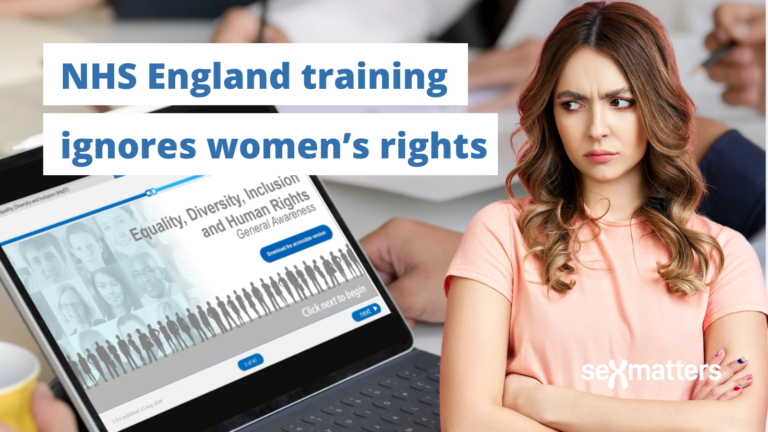Liberty University Faces Lawsuit Over Discrimination Against Transgender Employee
Liberty University Lawsuit: Discrimination Claims by a Transgender Employee
In recent headlines, Liberty University, a prominent Christian institution in Virginia, has found itself embroiled in a serious legal battle over allegations of discrimination against a former employee. This case shines a light on broader issues of employment rights, gender identity, and the intersection of faith and personal autonomy in corporate environments. Buckle up, as we dive into the details of this significant lawsuit and its implications for both individuals and institutions.
The Background
Let’s set the stage, shall we? Liberty University, known for its conservative Christian values, has taken pride in its commitment to a biblically-based lifestyle. However, this very commitment has been called into question with the recent discrimination claims brought forward by a former IT staffer, who has disclosed that she is a transgender woman. It’s a tricky spot, and it raises questions not just about the institution but also about how workplaces navigate the complexities of gender identity.
Imagine working diligently for years, pouring your passion and expertise into your job, only to find your life’s work turned upside down by societal norms or institutional biases. That’s exactly what the plaintiff, who used to work as a systems administrator, experienced. After coming out and seeking to live her truth, she was ultimately terminated. Such scenarios are more common than many might think and highlight a significant gap where acceptance and understanding should reside.
The Alleged Incident
The lawsuit details a series of events that led to the employee’s dismissal. It began shortly after she disclosed her transgender status and started the transition process. Initially, all appeared fine; however, her work atmosphere changed dramatically after her announcement. Reports imply that she faced an onslaught of hostility and discrimination from colleagues, which culminated in her termination.
Now, let’s clarify something important. This isn’t just about one person’s experience. It reflects a systemic issue within organizations that either uphold fear-based policies or have a lack of training regarding gender identity and inclusivity. Where does personal belief cross over into the realm of discrimination? Those lines can get blurry, but from what we’ve seen, it’s crucial for workplaces to adapt and evolve.
Why This Cases Matters
You might be wondering, “Why should I care about some random lawsuit at a university?” Well, here’s the kicker. This case isn’t just about Liberty University; it’s a bellwether for how educational institutions (and businesses at large) are handling matters of diversity and inclusion. As society continues to shift towards a more inclusive outlook, these high-profile cases will set precedent.
Additionally, it invites a broader conversation about the protection of LGBTQ+ rights in employment settings. The Equality Act and various state-level protections work towards ensuring that discrimination based on sexual orientation or gender identity is prohibited. However, not all workplaces are equipped to handle these changes effectively.
Liberty University’s Response
In typical fashion, universities embroiled in controversies usually engage in PR maneuvers, and Liberty is no different. The institution has publicly stated its commitment to its faith-based values while denying wrongful termination and discrimination allegations. They argue that their policies are in line with both their mission and applicable law.
But here’s the thing. The defense against such claims often relies on the assertion of “religious freedom.” It’s a valid point in debates surrounding such cases, but is it enough to override individual rights? One could say it’s like playing a game of tug-of-war; on one side, you have personal beliefs, and on the other, civil rights. The challenge comes in finding a balance that respects both.
The Role of Public Opinion
Public sentiment plays an undeniable role in how these cases unfold. Increased awareness and advocacy for transgender rights have emboldened individuals to stand up against discrimination. Consider this: social media has made it easier for people to rally around causes and advocate for change. This isn’t just about one lawsuit; it’s about influencing broader policy changes and societal perceptions.
Organizations can benefit from recognizing attitudes towards LGBTQ+ individuals are rapidly evolving. Ignoring this could lead to a considerable backlash. Liberty University may find itself in a precarious position if public opinion sways against it, affecting not only its reputation but potentially its enrollment numbers as well.
What’s Next for the Plaintiff?
So, what happens next? For the former employee, this lawsuit represents a chance at not only seeking justice for herself but also fighting for the rights of others who may have faced similar discrimination. If victorious, she could set a significant precedent, which could lead to systemic changes at Liberty University and possibly influence other institutions to review their policies.
Let’s not forget about the psychological toll this situation takes. Beyond financial compensation or reinstatement, there’s an emotional journey involved; one that may hold implications for mental health, personal identity, and self-perception. For many individuals, coming out is already an arduous task, and when faced with rejection or hostility, it can shatter one’s self-esteem.
Education and Awareness: A Path Forward
It’s clear this situation illustrates a dire need for comprehensive training and awareness programs in workplaces—especially in institutions rooted in conservative values. Ignorance isn’t bliss when it comes to respecting personal identities.
Consider this: awareness is like planting seeds; the more organizations nurture it through training, the more growth and acceptance they’ll witness. If Liberty University (and similar institutions) implements outreach programs that include respect for gender identity and LGBTQ+ rights, it may foster a more inclusive environment. This not only protects employees but also enriches the organizational culture.
Strategies for Inclusivity
If we reflect on how organizations can encourage inclusivity, a few key strategies emerge:
By taking these steps, organizations foster a culture of respect, acceptance, and understanding—qualities we should all be striving for in today’s society.
Conclusion
In an age where values and beliefs often clash with policies and rights, the lawsuit against Liberty University serves as a reminder of the complexities we face regarding gender identity and workplace discrimination. It’s about much more than one individual’s experience; it’s a catalyst for change that could reverberate through educational institutions, workplaces, and beyond.
As we continue to navigate these turbulent waters, we must remain vigilant and advocate for fairness, understanding, and respect for all individuals, regardless of their gender identity. After all, what matters most is not merely the legal ramifications, but the lives impacted by discrimination and the advocacy that emerges in its wake.
FAQs
1. What are the primary allegations in the lawsuit against Liberty University?
The lawsuit alleges that Lambda, the former IT employee, was discriminated against and wrongfully terminated after disclosing her transgender identity.
2. How does Liberty University defend its actions in this case?
Liberty University states that their policies align with their religious mission and denies the claims of wrongful termination and discrimination.
3. What broader implications might this lawsuit have?
This case could set a significant precedent for how other institutions handle transgender rights and might influence policy changes regarding inclusivity in workplaces overall.
4. What measures can organizations take to promote inclusivity?
Organizations should invest in training, establish clear anti-discrimination policies, and create safe support networks for LGBTQ+ employees.
5. Why is public opinion important in this lawsuit?
Public sentiment can influence the outcome of legal battles and shape the policies of institutions, as a strong outcry against discrimination may pressure organizations to change their practices.







